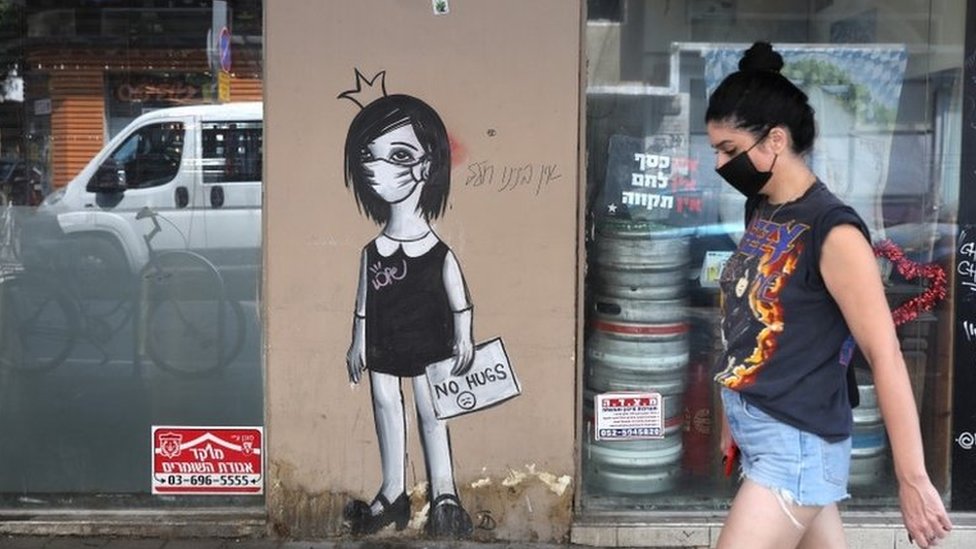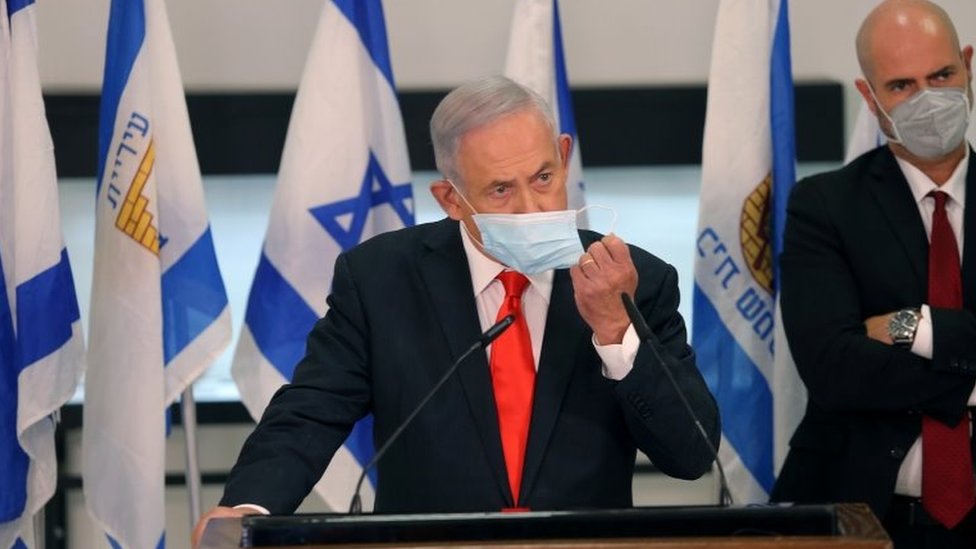 image copyrightEPA
image copyrightEPAIsrael’s cabinet is to consider whether to impose a nationwide lockdown, as the country struggles to halt a steep rise in coronavirus infections.
The health ministry reported 3,904 new cases on Wednesday, a new daily record that brought the total to 142,582. The death toll also rose by 11 to 1,054.
A week of overnight curfews and school closures began on Tuesday in 40 “red” areas with the highest infection rates.
But health officials are reportedly now recommending a month-long lockdown.


Israel was lauded in the spring for tackling the epidemic with early action that contained the spread of infection and saw a very low death rate compared to other countries.
Now the government is coming in for widespread criticism for losing control. A top scientist warned on Thursday that a crisis is “within touching distance” at some hospitals.
On Wednesday, 474 Covid-19 patients were seriously ill in hospital, while more than 1,000 people have died with the virus since the outbreak started.
The cabinet recently imposed school closures and new night-time restrictions in the worst affected towns.
Prime Minister Benjamin Netanyahu has said his government is doing “everything to maintain the economy and safeguard health and lives”.

Israel has experienced a resurgence of Covid-19 cases since May, when it eased the nationwide lockdown imposed at the start of the pandemic.
Last week, the country reported the highest rate of new infections per capita in the world, according to data from Johns Hopkins University in the US.
But religious parties in the governing coalition opposed such a move, which would have affected four predominantly ultra-Orthodox Jewish communities.
The mayors of those four areas warned Mr Netanyahu that they would stop co-operation with authorities if the lockdowns were imposed, while Interior Minister Arye Dery told the prime minister to impose a nationwide lockdown instead.

The cabinet subsequently announced that overnight curfews would be imposed in 40 “red” cities and towns with high infection rates – a decision that Mr Netanyahu said was “well considered, responsible and committed to reality”.
But with Rosh Hashanah approaching and the daily number of cases continuing to rise, Prof Gamzu is reportedly urging ministers to take further action.
Related Topics
Click Here to Visit Orignal Source of Article https://www.bbc.co.uk/news/world-middle-east-54091894


